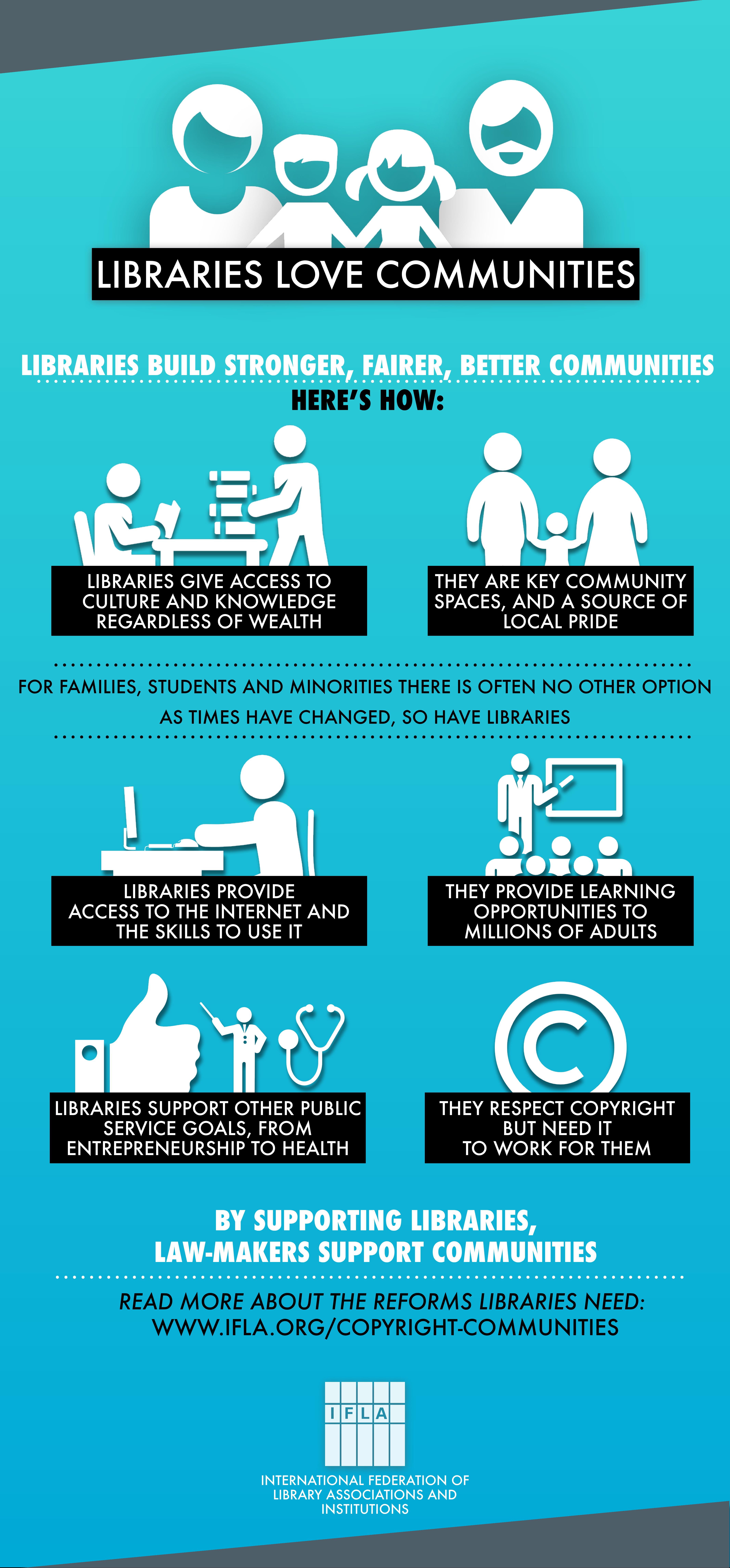Libraries, Copyright and Communities
Public libraries are at the heart of many communities. They welcome people from all backgrounds, providing a safe space, and often a source of pride. Throughout history, they have been centres of learning, sharing, and personal and social development.
They are particularly indispensable for minority groups. US research has underlined that minority groups are among the most frequent users of libraries, and are most likely to indicate that they would be hurt by the closure of their local library.
As established, trusted institutions, they are also great places for people to learn about new ways of accessing information. Within Europe, nearly five million people a year go online for the first time in a library. Libraries are also at the heart of efforts to give billions more people access to the internet around the world.
Libraries are not just about information, but also about the skills needed to use information. Staffed by professionals, they can offer guidance to users, and are increasingly hosting education and training courses for children and adults, complementing the formal education system. Their role in promoting ‘information literacy’ – the ability to deal with the wealth of facts and opinions independently – is looking increasingly important.
They also partner with government to enhance broader public services. Their work in providing public health information is credited with making major savings. They help local entrepreneurs develop their ideas and access support. They provide agricultural information services in countries like Nepal and Uganda.
To realise this role in the community, libraries not only need adequate resources and staffing, but also the right laws. Yet these are not always there.
Libraries’ education work has undoubted value, but they cannot, in many countries, benefit from the sort of copyright exceptions that allow schools, colleges and universities to use copyrighted works in teaching. This should be corrected.
Libraries are ready to promote eBooks, both to widen access to content, but also to respond to the rise of new forms of reading. But a lack of clarity in laws means that they are limited to what publishers choose to make available, on their terms. As Advocate-General Szpunar of the Court of Justice of the European Union has underlined, this is not a satisfactory situation for an issue of fundamental importance line access to knowledge and culture.
While welcoming engagements from publishers to make more books available, libraries need clearer rules, and practical steps to ensure that this happens on terms that work for them and their users.
Libraries are increasingly involved not just in giving access to creativity, but in promoting it. Through initiatives such as makerspaces, they are helping users to express themselves, often drawing inspiration from other library resources. Such uses help empower individuals and enrich community life, but without more flexible exceptions to copyright for non-commercial re-use of works, risk turning new creators into copyright infringers.
For libraries to continue to play their essential role in communities, and do more to promote literacy, access to information, and skills development, copyright reform must be high on the agenda.
